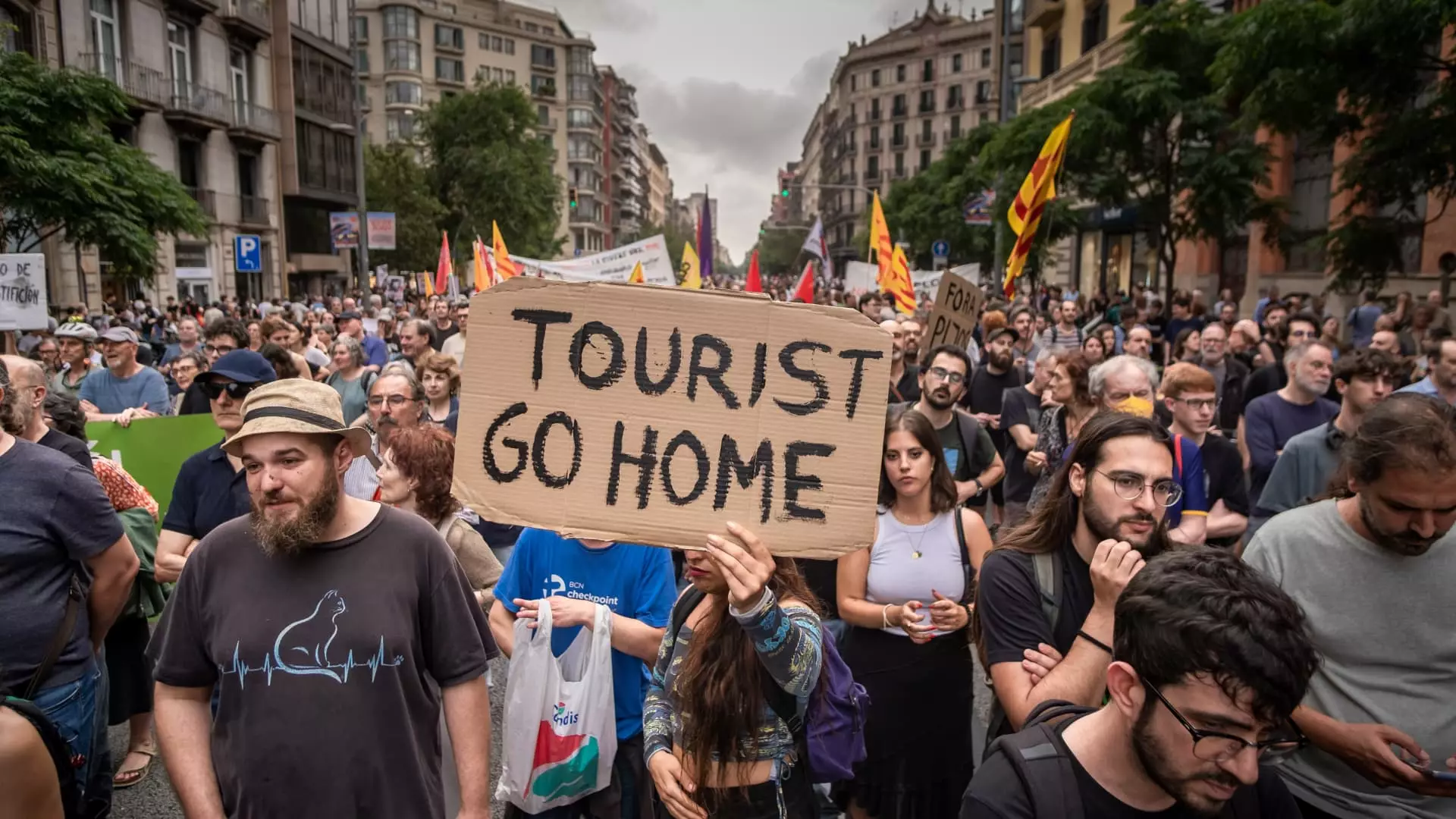Barcelona, a city celebrated for its stunning architecture and vibrant culture, is at a crossroads. On July 6, a significant protest erupted in response to the overwhelming presence of tourists, with demonstrators echoing a resonant slogan: “Tourists go home!” This occurrence highlights a growing schism between the interests of local residents and the booming tourism sector. While tourists flock to the city for its offerings, many residents feel suffocated by the influx, leading to a mounting crisis often characterized as overtourism.
The aftermath of this protest has been revealing. Just over a month later, Spain’s tourism board disseminated a distinctly contrasting message: „Spain: the summer you’ll want to repeat every year.“ This glaring juxtaposition underscores the paradoxical nature of Barcelona’s tourism industry. On one hand, the city is experiencing record numbers of visitors—over 10 million arriving in August alone, which marks a 7% increase from the previous year. On the other, the voices of the local population are growing louder and more insistent.
Statistics make for compelling narratives, yet they are often devoid of the emotional realities faced by residents. In the months following the protests, data revealed an uptick in international arrivals to Spain, with major destinations, including the Balearic Islands and Catalonia, seeing substantial increases in tourist numbers. Interestingly, a survey conducted by Mallorca’s tourism board indicated that nearly 89% of American tourists were either unaware of the protests or unconcerned about them. Those who were informed expressed that the demonstrations had little impact on their travel plans. This evidence suggests a growing disconnect between tourists and the burgeoning unrest among residents troubled by the rapid commercialization of their neighborhoods.
Despite these statistical validations, a deeper analysis reveals mixed reactions within the tourism sector. Booking.com, a leader in travel bookings, reported minimal shifts in reservations following the protests. In contrast, RateGain, a software analytics company, observed a noticeable decline in both bookings and search activity in the immediate aftermath, indicating that while the protests may not have deterred the majority of travelers, their impact was palpable in certain markets.
The city council of Barcelona has been thrust into the spotlight as tensions reached a boiling point. Following the protests, officials announced new measures aimed at addressing overtourism, including a comprehensive report detailing 55 strategies designed to strike a better balance between local residents and visitors. However, this initiative has been met with skepticism. Critics claim that such measures are merely „cosmetic,“ lacking the substance needed to create meaningful change. They argue that the council’s initiatives only serve to placate public outcry without addressing the root causes of the problem.
Daniel Pardo Rivacoba, a prominent member of the Assembly of Neighbourhoods for Tourism Degrowth, encapsulated this sentiment by calling for more substantial changes, such as limiting the growth of short-term rentals and reducing the number of cruise terminals. His organization’s demands extend beyond simple mitigation—there is a fervent desire to fundamentally reshape how tourism is managed in Barcelona.
Moreover, Rivacoba’s assertion that the weekly influx of tourists had “humiliated” protesters speaks volumes about the mixed feelings local communities harbor towards tourism. Despite claiming more than 15,000 attendees at the July protest—figures disputed by local media—Rivacoba argued that there is a growing momentum and solidarity among residents, suggesting that these collective actions could lead to systemic changes.
Reconceptualizing Tourism in Barcelona
As the protest movement gains traction, it prompts a crucial question: How can cities like Barcelona conceive a more sustainable model of tourism? Booking Holdings‘ CEO, Glenn Fogel, emphasized that the responsibility to reduce overtourism rests on governments, but achieving this will necessitate collaboration among various stakeholders, including travelers, local residents, and the tourism industry itself.
Amid political and social clamor, the essence of Barcelona’s struggle appears to be about more than just the volume of visitors. It reflects a deeper need for cities to reassess how tourism is integrated into daily life, ensuring that the needs of residents are not overshadowed by economic gains. Through ongoing protests and dialogue, it is clear that Barcelona’s residents are prepared to take a stand for their city, advocating for a tourism model that honors local cultures, communities, and environments rather than exploits them.
As the lines between the local population and tourists continue to blur, Barcelona stands as a case study for cities around the world grappling with similar challenges, demonstrating that the fight for sustainable tourism is both necessary and urgent.


Napsat komentář